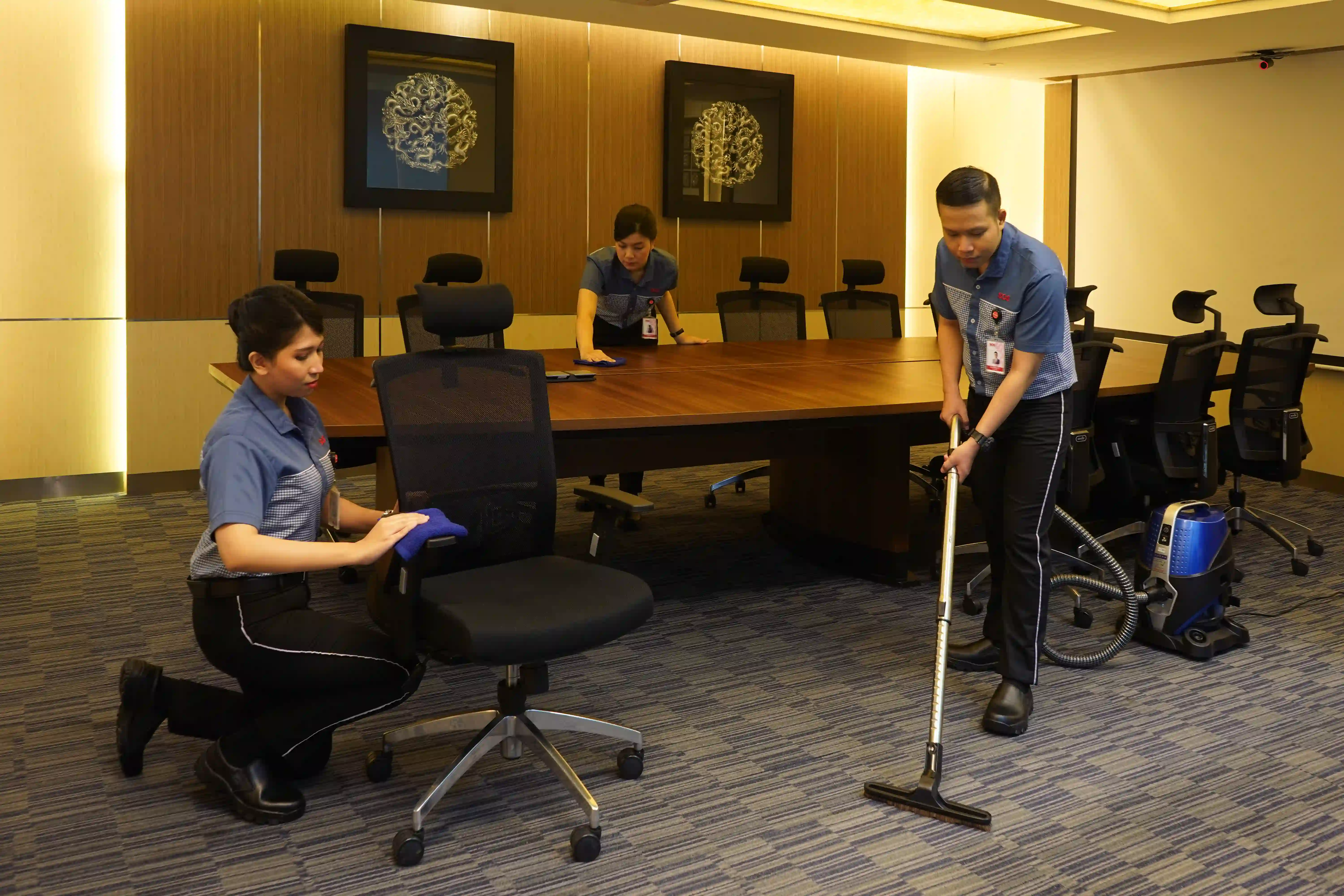9 Ways to Manage Workplace Stress for Better Productivity
30 June 2025

Understanding how to manage work stress is essential for every employee to remain both productive and mentally healthy. If left unaddressed, workplace stress can lower motivation, disrupt relationships among colleagues, and even affect overall team performance. That’s why it’s important to identify the causes of stress and take the right steps to overcome it.
In this article, we’ll cover everything you need to know. Let’s dive in!
Employee Stress Levels in Indonesia Based on Gallup Research
According to the State of the Global Workplace 2025 report by Gallup, Indonesia is among the countries with relatively low workplace stress levels in the ASEAN region, at 15%, ranking ninth regionally.
For comparison, Myanmar records the highest stress level in ASEAN, with 50% of employees experiencing workplace stress, while Vietnam has the lowest rate in the region.
Gallup also found that only 21% of employees worldwide are truly engaged in their work. On the other hand, a majority—62% of workers—lack emotional engagement, putting them at risk of quiet quitting or working without motivation.
These findings highlight the importance of paying attention to employees’ emotional well-being, including in Indonesia, as a crucial first step toward effective work stress management solutions.
9 Effective Ways to Manage Workplace Stress
Managing stress is not just an individual’s responsibility—it should also be part of the company’s strategic focus. Here are some actionable solutions companies can adopt to help reduce stress:
1. Encourage Good Time Management
Efficient scheduling is a foundational step in controlling stress. Encourage employees to create daily to-do lists, set priorities, and avoid excessive multitasking. A well-structured schedule helps lighten the workload and makes it more manageable.
2. Promote Open and Healthy Communication
Open communication prevents misunderstandings and lowers workplace tension. Create a work culture where employees feel safe to express ideas, concerns, or needs without fear of judgment. Healthy communication strengthens teamwork and fosters a supportive atmosphere.
3. Provide a Comfortable Break Room
A thoughtfully designed break area can act as a “recharging” space for employees. Ensure it includes natural lighting, ergonomic seating, and a calming ambiance. Even short breaks in a peaceful setting can effectively alleviate stress.
Read Also: 10 Ways to Improve Employee Performance for Maximum Results
4. Show Appreciation for Employee Efforts
Recognizing hard work boosts motivation and job satisfaction. Companies don’t always need to give large incentives—even verbal praise or small rewards can go a long way. When employees feel valued, they are generally happier and more motivated, leading to reduced stress levels.
5. Support Healthy Lifestyles
Offer wellness programs and mental health education. Healthy food options in the cafeteria, fitness facilities, and mindfulness campaigns are great initiatives. Physical health strengthens resilience against mental stress.
6. Offer Flexible Work Arrangements
Flexibility such as work-from-home options, adjustable hours, or additional leave when needed can help employees better manage their work-life balance. Flexibility reduces the strain caused by personal-work conflicts.
7. Involve Employees in Decision-Making
Employees involved in organizational decisions feel more responsible and appreciated. This sense of ownership enhances emotional engagement and lowers psychological tension caused by feeling left out.
8. Conduct Stress Management Training
Stress management workshops equip employees with effective coping strategies. From breathing techniques and meditation to emotional regulation, these trainings provide valuable tools to handle daily stressors.
Read Also: 7 Ways to Boost Employee Motivation – A Must-Know for HR!
9. Provide Counseling or Psychological Support
Internal counseling services or partnerships with professional psychologists offer real support for those feeling overwhelmed. Providing access to these resources shows that the company genuinely cares about employees’ mental health.
How to Stop Work-Related Stress
Relying solely on the company to handle workplace stress is not enough. As an employee, you also need to take an active role. While managing stress is important, eliminating it from the root cause is far more effective. Here’s how you can do it:
1. Know Your Limits
Don’t push yourself beyond your capacity. Saying no to unrealistic additional tasks doesn’t mean you’re incompetent—it’s a way to protect yourself. This helps prevent symptoms of chronic stress.
2. Separate Work and Personal Life
Set clear boundaries between work and personal life. If necessary, turn off work notifications outside office hours. A well-balanced lifestyle helps maintain a positive and healthy mindset.
3. Build a Healthy Work Environment with Colleagues
Good communication with colleagues can ease work pressure. A supportive workplace reduces emotional strain and feelings of being overwhelmed.
4. Practice Daily Mental Detox
Take time each day to release mental burdens—whether through journaling, meditation, or simply walking without digital distractions.
5. Stay Physically Active
Light exercises like stretching or brisk walking help your body release endorphins, the natural hormones that fight stress from within.
6. Maintain a Healthy Diet and Sleep Routine
Avoid fast food and ensure you get enough rest. The combination of nutritious meals and proper sleep strengthens your body’s defense against stress.
5 Common Causes of Workplace Stress
To apply the right solutions, companies must first understand what typically triggers stress at work. Here are the most common causes:
1. Excessive Workload
A heavy workload is one of the leading causes of workplace stress. When employees are pressured to meet tight deadlines or handle multiple responsibilities without sufficient resources, stress becomes unavoidable.
Over time, this can result in fatigue, mental exhaustion, and even long-term burnout.
2. Lack of Support from Supervisors
An individualistic work environment with little collaboration can worsen stress. Employees who feel they are working alone without support from their managers are more likely to experience anxiety.
When problems arise without a healthy space for communication, the pressure only increases. Loneliness in the workplace can also become a serious trigger for stress.
Read Also: 10 Effective Ways to Improve Employee Work Quality
3. Unclear Roles and Responsibilities
When employees do not clearly understand their roles and responsibilities, confusion is inevitable.
This lack of clarity can trigger conflicts between divisions or even between individuals. In the long run, it can cause employees to feel incompetent, insecure, and anxious about making mistakes.
4. Interpersonal Conflict
Internal conflicts, whether personal or professional, have a significant impact on the workplace atmosphere. Tensions between employees can create an uncomfortable environment and drain emotional energy.
If not addressed wisely, conflicts can trigger prolonged stress and lower overall employee morale.
5. Poor Work-Life Balance
Work-life balance is an important factor that is often overlooked. When work consumes most of an employee’s time and energy, the space for family, self-care, and rest is reduced. This imbalance leads to accumulated stress and has a direct impact on mental health.
It’s important to note that the impact of workplace stress on employee performance should not be underestimated. Stress reduces focus, productivity, and creativity.
Beyond that, unmanaged stress can increase absenteeism, raise the risk of turnover, and lower employee loyalty to the company.
By implementing the strategies mentioned above, companies not only reduce the potential for workplace stress but also build a healthier and more productive work culture.
Happy and stress-free employees are more likely to perform at their best and remain loyal to the company.
Of course, companies understand that their success greatly depends on the psychological condition and well-being of every employee. However, managing all these aspects internally is not always easy.
What’s needed is an efficient system, professional workforce, and well-organized operational management.
This is where the importance of having a reliable partner to support your company’s daily operations becomes clear. One effective solution to consider is partnering with a professional outsourcing service provider like SOS.
Partner with SOS to Improve Employee Well-Being and Operational Efficiency
Amid increasing workplace complexity, SOS offers integrated outsourcing solutions to support your company’s daily operations. Whether it’s administrative tasks, logistics, or security services, SOS provides well-trained personnel that meet industry standards.
From administrative tasks and logistics management to security services, SOS provides a workforce that has undergone training and selection in line with industry standards. Companies not only gain high-quality human resources, but also enjoy greater cost efficiency and simplified management processes. By partnering with SOS, businesses can focus more on growth and development without being burdened by operational technicalities.
By partnering with SOS, your company can focus more on business growth without being burdened by technical operational matters. Contact SOS via WhatsApp today and discover the best workforce solutions to enhance your company’s performance!



